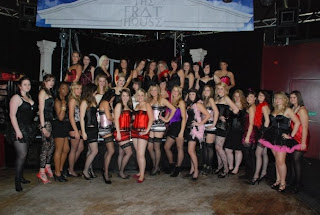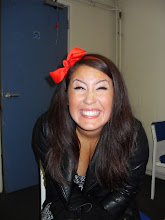People form groups for many different reasons some might join a group to
 make new friends, survival or even to be accepted into certain societies. Since i started uni i have been apart of the Netball society I personally do not play for the team but i do go out with the girls for most of the social nights that they have at the student union. The reasons why i joined this group was because i used to play netball when i was younger and the main reason was because i just moved to a different town away from home, not knowing anybody and i wanted to get to know as many people as i could!
make new friends, survival or even to be accepted into certain societies. Since i started uni i have been apart of the Netball society I personally do not play for the team but i do go out with the girls for most of the social nights that they have at the student union. The reasons why i joined this group was because i used to play netball when i was younger and the main reason was because i just moved to a different town away from home, not knowing anybody and i wanted to get to know as many people as i could!However, certain behaviour with certain groups can be unde
 sirable. This can be the case for brands too for example, a few years ago Burberry's iconic chequered pattern was misunderstood by the public coming across as very chavy. Certain people over did it with the chequered pattern e.g. Daniella Westbrook.This had a major impact on the sales and reputation for Burberry as people didn't really buy any of their products which had their iconic pattern on. An article from the Daily Mail states that.. 'The luxury brand with a chequered past, Burberry has shaken off its chav image and become the fashionistas favourite once more'. They did this by spending millions of pounds on getting high class models like Kate Moss to model for them, by have Kate they mad the brand seem more desirable to public.
sirable. This can be the case for brands too for example, a few years ago Burberry's iconic chequered pattern was misunderstood by the public coming across as very chavy. Certain people over did it with the chequered pattern e.g. Daniella Westbrook.This had a major impact on the sales and reputation for Burberry as people didn't really buy any of their products which had their iconic pattern on. An article from the Daily Mail states that.. 'The luxury brand with a chequered past, Burberry has shaken off its chav image and become the fashionistas favourite once more'. They did this by spending millions of pounds on getting high class models like Kate Moss to model for them, by have Kate they mad the brand seem more desirable to public.Maslow's Hierarychy of Needs
Maslow's hierarchy of needs has all the main aspects a person has when joining a group, Maslow factors are as folows:
- Sel Actualisation
- Esteem needs
- Safety needs
- Belonging need
- Psychological needs
Marketers have to take into account of all these factors. marketers mainly believe that 'man is a social animal' and need unconditional positive regard. Children will learn through through conditional positive regard. I would say that the most important factor of the hierarchy would be belonging, the reason behind this is because marketers and advertisers use this factor as pivotal message in ad campaign.
According to Solomon (2006) social comparison theory asserts that this process occurs as a way of increasing the stability of one's self-evaluation, especially when phsysical evidence is unavaliable. Consumers are selctive about who they use for benchmarks. In general, for social comparisons, people tend to choose a Co-Oriented Peer, or a person of equivalent standing.
No comments:
Post a Comment